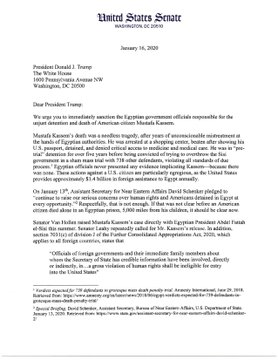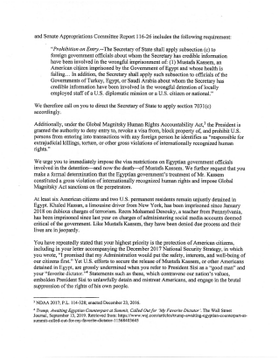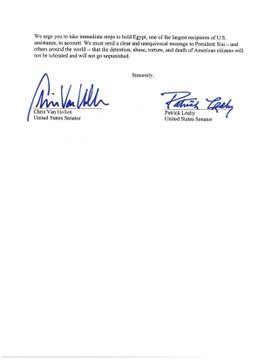 17 January 20 Losing RSN Right Now Is a Dangerous Direction
Hang in there Marc and friends. For years I've been an irregular regular contributor, pitching in roughly quarterly for my own accounting purposes.
I've rarely missed, but don't mind your justified vitriol. You are performing an invaluable service to our country.
Wake up folks. Losing RSN right now is a dangerous direction.
Sure, I'll make a donation!Update My Monthly Donation
If you would prefer to send a check:
Reader Supported News PO Box 2043 Citrus Hts, CA 95611 |
Dahlia Lithwick | How Will the Senate Get Away With Its Sham Trial Now?

Dahlia Lithwick, Slate
Lithwick writes: "Senate Majority Leader Mitch McConnell doesn't much care about fairness or process. He cares about winning. But he likes to win by citing fairness and process. He thinks that's clever."
READ MORE

Supreme Court Chief Justice John G. Roberts Jr. at the Capitol, Feb. 5, 2019. (photo: Joshua Roberts/Reuters)

Dahlia Lithwick, Slate
Lithwick writes: "Senate Majority Leader Mitch McConnell doesn't much care about fairness or process. He cares about winning. But he likes to win by citing fairness and process. He thinks that's clever."
READ MORE

Supreme Court Chief Justice John G. Roberts Jr. at the Capitol, Feb. 5, 2019. (photo: Joshua Roberts/Reuters)
Democrats Can Get Witnesses With 50 Votes - If Roberts Does His Job
Harry Litman, The Washington Post
Litman writes: "Will it take four Republican senators to buck Majority Leader Mitch McConnell and force the Senate to consider additional testimony and documents?"
READ MORE

The new restrictions come as gun-rights advocates plan to rally near the Capitol on Jan. 20. (photo: Jonathan Drake/Reuters)
Harry Litman, The Washington Post
Litman writes: "Will it take four Republican senators to buck Majority Leader Mitch McConnell and force the Senate to consider additional testimony and documents?"
READ MORE

The new restrictions come as gun-rights advocates plan to rally near the Capitol on Jan. 20. (photo: Jonathan Drake/Reuters)
Days Before Virginia Gun Rally, FBI Arrests 3 Alleged White Supremacists
Pete Williams and Erik Ortiz, NBC News
Excerpt: "Three suspected members of a white supremacist group face federal charges after the FBI apprehended them days before a gun rights rally in Virginia's capital next week, federal prosecutors said Thursday."
READ MORE

One of the many impact sites created by the recent missile attacks at Al Asad Air Base, Iraq. (photo: EPA)
Pete Williams and Erik Ortiz, NBC News
Excerpt: "Three suspected members of a white supremacist group face federal charges after the FBI apprehended them days before a gun rights rally in Virginia's capital next week, federal prosecutors said Thursday."
READ MORE

One of the many impact sites created by the recent missile attacks at Al Asad Air Base, Iraq. (photo: EPA)
Iran Missile Strike: US Now Says 11 Troops Were Treated for Concussion Symptoms
Guardian UK
Excerpt: "The US treated 11 of its troops for symptoms of concussion after an Iranian missile attack on an Iraqi base where US forces were stationed, the US military said on Thursday, after initially saying no service members were hurt."
READ MORE

Missouri's Supreme Court struck down key provisions of a voter ID law. (photo: Bill Clark/CQ Roll Call)
Guardian UK
Excerpt: "The US treated 11 of its troops for symptoms of concussion after an Iranian missile attack on an Iraqi base where US forces were stationed, the US military said on Thursday, after initially saying no service members were hurt."
READ MORE

Missouri's Supreme Court struck down key provisions of a voter ID law. (photo: Bill Clark/CQ Roll Call)
Ian Millhiser, Vox
Millhiser writes: "A 14-year battle to enact a voter ID law in Missouri hit a speed bump on Tuesday, when the state Supreme Court struck down key provisions of a 2016 law making it harder for many voters to cast a ballot."
Voter ID laws require voters to show photo ID at the polls before they can cast a ballot. Although they are often defended as a way to prevent individuals from impersonating another voter, this particular kind of voter fraud barely exists in the United States.
Meanwhile, critics of voter ID argue that they are disproportionately likely to disenfranchise students, low-income voters, and voters of color — groups that are less likely to have ID than the average voter, and that tend to favor Democrats over Republicans. The empirical data on just how many voters are disenfranchised by such laws, though, is highly uncertain.
The Missouri Supreme Court’s decision in Priorities USA v. State marks the second time that court struck down a voter ID law. In Weinschenk v. State (2006), the state Supreme Court struck down a particular restrictive voter ID law on the grounds that it jeopardized the “fundamental right to vote” protected by the state constitution.
The decision in Priorities USA, by contrast, is less of a grand pronouncement about the right to vote and more of a statement that lawmakers need to be careful when they draft legislation.
The 2016 voter ID law at issue in Priorities USA is weaker than the one at issue in Weinschenk — it allows some voters who do not have a photo ID to vote if they also sign an affidavit drafted by the state. But the affidavit is drafted poorly, and two of its sentences appear to contradict each other. Thus, the state Supreme Court determined that requiring voters “to sign a contradictory, misleading affidavit is not a reasonable means” to achieve voter ID’s supposed goals.
As a practical matter, this means that the state legislature, which is dominated by Republicans, can likely revive the voter ID law by drafting it more carefully. For the time being, however, the right to vote just got a small but significant boost from the state Supreme Court — a court, it’s worth noting, that is particularly shielded from partisan politics.
At best, voter ID accomplishes nothing. At worst, it disenfranchises numerous voters.
Voter ID laws, if they achieve anything, can only prevent one particular form of fraud: voter identification fraud at the polls. But numerous studies and investigations show that this kind of fraud is only slightly more common than fire-breathing dragons.
A study by Loyola Law School professor Justin Levitt, who led much of the Justice Department’s voting rights work under President Obama, found only 35 credible allegations of in-person voter fraud among the 834 million ballots cast in the 2000-2014 elections. A Wisconsin study found only seven cases of fraud among the 3 million cast in the 2004 election — and none of these seven were the kind that could be prevented by voter ID. In 2014, Iowa’s Republican Secretary of State Matt Schultz concluded a two-year investigation into election misconduct within his state. He found zero cases of voter impersonation at the polls.
Voter ID laws are, at best, a solution in search of a problem. Yet while voter ID laws achieve no legitimate purpose, there is some evidence that they advance a more sinister goal.
Studies examining the impact of voter ID laws are all over the map. Some find that they have no meaningful impact on voter turnout. Others found much more significant impact — such as a paper that found that “Democratic turnout drops by an estimated 7.7 percentage points in general elections when strict photo identification laws are in place,” while Republican turnout drops by only 4.6 points. During the 2012 election, data journalist Nate Silver estimated that a Pennsylvania voter ID law would have reduced “President Obama’s margin against Mitt Romney by a net of 1.2 percentage points.”
So there’s no evidence that voter ID laws do much good, and at least some evidence that they do considerable harm to the franchise. At best, the laws erect needless barriers in front of voters, and they accomplish no legitimate goal.
The Missouri Supreme Court’s latest decision is fairly narrow
Although Priorities USA is a victory for opponents of voter ID, it’s also a pretty narrow one.
In 2016, Missouri Republicans successfully pushed a state constitutional amendment that allows the state legislature to enact voter ID laws — effectively removing the 2006 Weinschenk decision as an obstacle to such laws. The GOP-controlled legislature swiftly took advantage of this new authority.
Yet the state’s 2016 voter ID law is less strict than it might have been. Among other things, it allows voters who lack photo ID to cast a ballot if they provide an alternative proof of identity — such as a “current utility bill, bank statement, government check, paycheck, or other government document that contains the name and address of the individual” — and so long as they sign a state-mandated affidavit.
But the required affidavit is poorly drafted. One sentence states that “I do not possess a form of personal identification approved for voting.” Another sentence provides that “I furthermore acknowledge that I am required to present a form of personal identification, as prescribed by law, in order to vote.”
Thus, Priorities USA held that the affidavit requirement must be struck down because it is likely to confuse voters into thinking they cannot vote unless they have an ID that they do not possess.
That’s a speed bump for voter ID supporters, but it’s unlikely to be more than that. The constitutional amendment permitting voter ID laws remains valid.
Missouri does an unusually good job of choosing Supreme Court justices
It’s worth noting that Priorities USA was not decided along party lines. Currently, the court is divided 4-3 between Democratic and Republican appointees. But one of the Republican appointees, Justice Patricia Breckenridge, crossed over to vote with the four justices appointed by Democratic governors.
One possible explanation is that Missouri does an especially good job of minimizing politics in its judicial selection process. According to the Brennan Center for Justice, the “gold standard for many in the reform community” is Missouri’s plan for choosing supreme court justices.
Under that plan, vacancies are referred to a seven-person commission that includes “three lawyers elected by the lawyers of the Missouri Bar ... three citizens selected by the governor, and the chief justice, who serves as chair.” That commission selects three candidates, and the governor must choose one of the three within 60 days or else the commission will make the final decision.
The new justice will then face a retention election after a year in office, where voters decide to either keep or remove them.
It’s not a perfect system, and there are some states where the merit-selection commission was captured by a political faction. But Missouri’s system is a whole lot better than the federal system, where a partisan president chooses nominees who must be confirmed by a partisan Senate.
There is no surefire way to strip partisan politics from the judicial selection process. But there are ways to mitigate the impact of such politics. And Missouri does an especially good job of achieving that goal.

Moustafa Kassem died in Egypt on Monday. (photo: Kassem Family)
Middle East Eye
Excerpt: "Two US Senators called on President Donald Trump to 'immediately' sanction Egypt over the recent death of Mustafa Kassem, an American citizen who had been held in an Egyptian prison for five years."
EXCERPTS: The Global Magnitsky Act is a human rights bill passed by Congress in 2016 that allows the US government to sanction foreign officials implicated in human rights abuses around the world.
"Egyptian officials never presented any evidence implicating Kassem - because there was none," the senators wrote in their letter to Trump on Thursday.
Both senators have long followed Kassem's case, with Van Hollen having met with Egyptian President Abdel Fattah el-Sisi over the summer to discuss his release.
When I met with President Sisi last summer, I asked him to release Mustafa Kassem. When he refused, I worked with @SenatorLeahy to hold the regime accountable for unlawfully detaining and torturing Americans. Trump needs to implement our sanctions and stop embracing dictators.
At a news conference on Wednesday, Van Hollen called Kassem's death a "killing" enabled by "failures by the Trump administration" to apply the necessary pressure to secure his release and the release of other Americans detained in Egypt.
Before his death, Kassem had written letters to Trump and Vice President Mike Pence asking them to secure his freedom.
Since 2013, Sisi's government has overseen a broad crackdown on dissent, with as many as 60,000 people jailed.
Still, Trump has repeatedly heaped praise on the Egyptian leader, even calling him "my favourite dictator".
"This killing should serve as a wake-up call," Van Hollen said on Wednesday.
On Monday, when asked if the Trump administration planned "to do anything to penalise the Sisi government" over Kassem's death, a senior State Department official told reporters it was "still premature to talk about that".
"We are really concerned about this and we're going to talk about it, about what we're going to do. We haven't decided yet," the official said.
There are said to be at least six US citizens currently held in Egyptian prisons.
Egypt is the second-biggest recipient of US military aid after Israel, receiving $1.4bn every year.
While the US has cut aid to Egypt in the past, citing human rights concerns, the Trump administration has waived human rights conditions that have applied to some $300m in aid.

Fire swept through Australia's Wollemi National Park, but firefighters were able to save rare groves of prehistoric Wollemi pines. (photo: Reuters)
Australian Firefighters Save World's Only Groves of Prehistoric Wollemi Pines
Laurel Wamsley, NPR
Wamsley writes: "It was a lifesaving mission as dramatic as any in the months-long battle against the wildfires that have torn through the Australian bush."
Laurel Wamsley, NPR
Wamsley writes: "It was a lifesaving mission as dramatic as any in the months-long battle against the wildfires that have torn through the Australian bush."
But instead of a race to save humans or animals, a specialized team of Australian firefighters was bent on saving invaluable plant life: hidden groves of the Wollemi pine, a prehistoric tree species that has outlived the dinosaurs.
Wollemia nobilis peaked in abundance 34 million to 65 million years ago, before a steady decline. Today, only 200 of the trees exist in their natural environment — all within the canyons of Wollemi National Park, just 100 miles west of Sydney.
The trees are so rare that they were thought to be extinct until 1994.
That's the year David Noble, an officer with the New South Wales National Parks and Wildlife Service, rappelled into a narrow canyon and came across a grove of large trees he didn't recognize.
Noble brought back a few twigs and showed them to biologists and botanists who were similarly stumped.
A month later, Noble returned to the grove with scientists. It was then that they realized what they had found: "a tree outside any existing genus of the ancient Araucariaceae family of conifers," the American Scientist explains.
The trees are tall and can reach 130 feet high in the wild. They have thin, fragile bark covered in dark brown nodules that give them a sort of "bubbly" appearance. They bear cones that appear at the end of their branches, and the trees are monoecious, meaning that each plant has both male and female cones.
So when Australia's wildfires started burning toward Wollemi National Park in recent weeks, firefighters from the parks and wildlife service and the New South Wales Rural Fire Service put a carefully planned operation into motion.
"This is a key asset, not only for the national parks, but for our entire country," Matt Kean, New South Wales' environment minister, said in an interview with the Australian Broadcasting Corporation.
Large air tankers dropped fire retardant around the pines. Firefighters set up an irrigation system around the trees to keep them wet. Specialist teams winched from helicopters down to the forest floor to make sure it stayed wet.
"If the fire did go through, we wanted it to be a cool burn as opposed to a hot burn to give them the best chance of survival," Kean said.
The fire did sweep through the canyons, and through the groves where these trees have somehow survived for millions of years.
For a few days, the smoke was so thick that it wasn't clear whether the plan had worked. "We all waited with bated breath," Kean said.
At last the smoke abated.
A few trees had been charred by the flames, and two died. But the efforts had paid off. "Finally," Kean said, "we were able to get in there and see that, thank goodness, the trees were saved."
He says they knew they had to do everything they could to save the Wollemi groves.
"These are the only living Wollemi pines found anywhere on the planet in their natural environment. These pines used to cover the whole of Australia. Now they're only found in a very small and secret location in New South Wales."
That's right: The exact location of the trees is a secret.
The government says the trees' long-term survival depends on keeping their location confidential and on the public's cooperation in not attempting to visit them. Visitors could introduce disease and might trample regenerating plants.
Kean thanked the firefighters for their efforts and acknowledged that while fire season isn't new, it's getting worse.
"We'll always have bush fires in this country. There's no doubt about that. But there's no doubt also that the severity of this year's bush fires is not like anything we've ever seen. And that's due to climate change," Kean said. "There's a huge opportunity for us to lead the way in terms of tackling climate change and help the rest of the world decarbonize. There's no better country on the planet better placed to do that than Australia."
Authorities will study the species' response to the fires to shape the response strategy in the future — a future in which fire will continue to threaten fragile ecosystems.





No comments:
Post a Comment